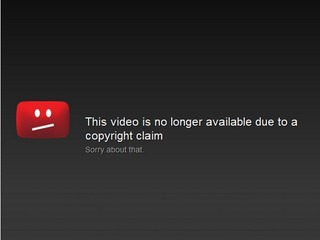Global AI in healthcare market expected to rise to $164B by 2030
The market size for 2023 was $10.31 billion
Read more...
Updated with comment from Microsoft
Microsoft could be facing charges for not complying with a 2009 European Union ruling regarding the web browsers it offered, Reuters reported Thursday.
Back in December 2009, EU and Microsoft cut a deal in which the company give users a “Browser Choice Screen,” which would allow them to pick from up to 12 browsers, and in return the EU would drop antitrust charges against the company. Microsoft was to make the choice screen available for five years.
The EU kept up its end of the deal, but opened up an investigation in July to see if Microsoft had complied with the deal.
“On the basis of information it has received, the Commission believes that Microsoft may have failed to roll out the choice screen with Windows 7 Service Pack 1, which was released in February 2011. This is despite the fact that, in December 2011, Microsoft indicated in its annual compliance report to the Commission that it was in compliance with its commitments. From February 2011 until today, millions of Windows users in the EU may have not seen the choice screen. Microsoft has recently acknowledged that the choice screen was not displayed during that period,” The European Commission said in a press release in July.
Turns out that Microsoft had not done what it was supposed to do, which it even admitted in a statement on its blog at the time, saying it had “fallen short in our responsibility to do this.”
“Due to a technical error, we missed delivering the BCS software to PCs that came with the service pack 1 update to Windows 7. The BCS software has been delivered as it should have been to PCs running the original version of Windows 7, as well as the relevant versions of Windows XP and Windows Vista. However, while we believed when we filed our most recent compliance report in December 2011 that we were distributing the BCS software to all relevant PCs as required, we learned recently that we’ve missed serving the BCS software to the roughly 28 million PCs running Windows 7 SP1.”
After realizing the error, Microsoft wrote that it went ahead and fixed the problem, started an investigation into how the error occurred, and immediately told the EU Commission.
“Since we have fallen short in our responsibility to display the BCS, we have offered to extend the time during which we are obliged to do so by an additional 15 months. We understand that the Commission will review this matter and determine whether this is an appropriate step for Microsoft to take. We understand that the Commission may decide to impose other sanctions,” Microsoft wrote.
Despite these actions taken my Microsoft, EU Competition Commissioner Joaquin Almunia told reporters in Warsaw that formal charges are being prepared against the company.
"The next step is to open a formal proceeding into the company's breach of an agreement. We are working on this," Almunia said.
"It should not be a long investigation because the company itself explicitly recognized its breach of the agreement.”
Microsoft could face severe penalties if found guilty. The EU may charge it up to $7.4 billion, or 10 percent of its revenues for the fiscal year ending June 30, 2012.
A Microsoft spokesperson would not comment on the report.
(Image source: https://gizmodo.com)
The market size for 2023 was $10.31 billion
Read more...At Culture, Religion & Tech, take II in Miami on October 29, 2024
Read more...The company will use the funding to broaden the scope of its AI, including new administrative tasks
Read more...



